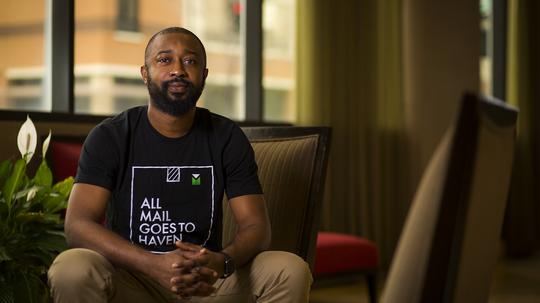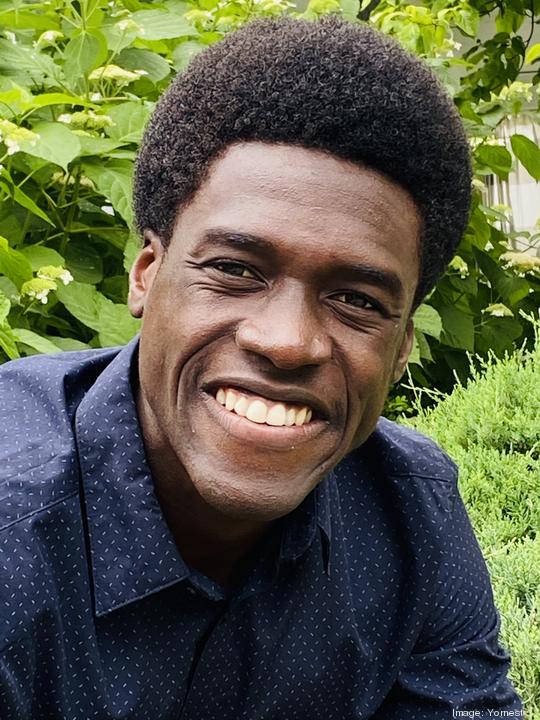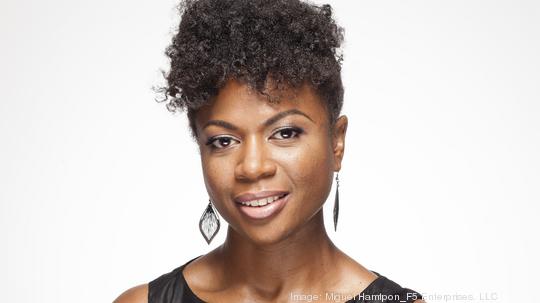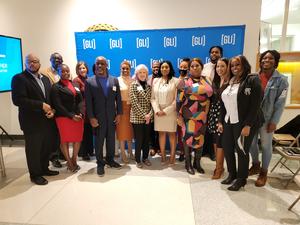1.2
That's roughly the percentage of what Black-founded startups received of total venture dollars in the first half of 2021, a year that would go on to shatter all previously-held records. And while that's double the paltry 0.6% that went to Black founders in 2020, it's still just a minuscule fraction of all U.S. venture funding that would total $330 billion last year.
For comparison, Kentucky startups, in total, got just $200 million of that $330 billion — roughly .06%.
That's tough odds for Black founders looking to scale their companies from the Bluegrass State.
While trying to grow his first startup, Arrow Food Couriers, Kela Ivonye couldn't gain traction with investors in Louisville. He went to every open coffee meeting and nearly every networking event, and was still unable to raise any local capital.

Yet after securing capital outside of Louisville, Ivonye said he recognized the power a social network can have, especially as a Black founder. So when he founded MailHaven — the company he would ultimately exit after an acquisition in 2019 — he went straight to accelerators.
"The first couple hundred thousand MailHaven secured came from accelerators," Ivonye said, referencing Louisville's Vogt Awards and Silicon Valley's 500 Startups, among others. "So when I'm working with founders now, I don't make introductions to investors in this region — I want to put the power in the hands of the founders themselves."
Michael Brizendine was trying to raise $350,000 for his social media and group messaging platform Yornest, another Vogt Award-winning company. He raised $100,000, but then halted his fundraising efforts, deciding it would be more fruitful to push forward with the capital they have in hand.

A native of Haiti, Brizendine said he doesn't believe being a minority founder has adversely impacted him when pitching to investors. Rather, it was the early-stage of Yornest itself, he said, noting that investors want to see more traction in the platform before writing checks.
And after launching the platform for both iOS and Android devices, that's what Brizendine is working on now via a college ambassador marketing strategy. The platform is currently being used by groups on over 50 college campuses.
"I think for us, we have a unique way of approaching the college area and that's what we're trying to prove," he said. "Until we prove that, we will not be able to get what we really want in terms of resources to scale."
Venture capital isn't the only way to fund a company, however.
Dr. Angelique Johnson, CEO and founder of MEMStim, has received around $5 million in non-dilutive funding via SBIR/STTR grants, matching funds from the state and other sources to fund the research and development of its scalable manufacturing process for producing cochlear electrode arrays and other devices.

It's an extensive application process for SBIR grants, Johnson said, but it's worth it to get access to early-stage capital that companies need to build and vet the technology.
"Investors are hesitant to give you money for research and development, so the SBIR has been really good because it allows us and allows other people to work out the innovation part of it," she said. "Then when you're ready, you can go to investors and say, 'Hey, the innovation has been worked out, we've got the process and now we're ready to scale up.'"
As a Black female founder in tech, Johnson said she catches investors off guard, which can work to her advantage.
"As a Black female in my space, I'm so rare and because of their biases, [investors] aren't expecting me to really live up to my full potential," she said. "So when I get in a conversation with them, and they're like, 'Oh wait, wow, this is not what we were thinking of,' because they had biases towards what they thought a Black woman would bring to the table. It kind of can work in my favor, in some some ways, because they're like, 'Oh, you're a unicorn.'"










